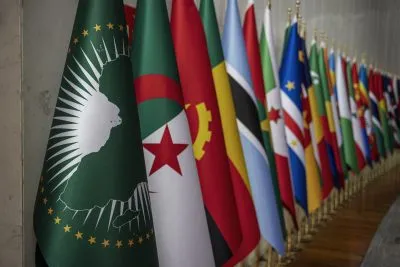This article was produced with the support of CIB
Can you summarise the performance of Commercial International Bank (CIB) this year. Given what’s happened, are you expecting positive results for the year?
While the pandemic has been disruptive, it has created numerous opportunities for CIB to expand our process of digitalisation, and despite the pandemic, I am expecting positive results. Our early adaption of digital banking provided a crucial advantage to our Bank. We enhanced our existing platforms to accommodate the influx of new users and created offline requests to allow clients to perform more transactions through online and mobile banking services.
At a time when corporations are being forced to rethink how they define success and formulate new, more inclusive models of growth, we have repositioned CIB to ensure we are leaving more on the table for employees, clients, and our communities.
What about 2021? Is it going to be about provisioning for losses as businesses fail or will you see an uptick in lending as people start to reinvest?
Although there is a degree of uncertainty, we currently expect a rebound in global growth in 2021. Gradual economic recovery, coupled with the likelihood that a Covid-19 vaccine will be available soon, as well as support from governments and flexibility from regulators, should provide an uptick in lending next year.
The importance of tourism to Egypt’s economy is clear. What sectors are you most concerned about and which sectors have been buoyant?
While tourism has taken a hit during the pandemic, Egypt’s sizable informal economy is likely the most vulnerable and affected. On a positive note, we have witnessed promising activity in sectors such as power, real estate, telecom, food and beverages, petrochemicals, and oil and gas.
Earlier this year CIB took a majority stake in Kenya’s Mayfair Bank. Does this indicate a move to develop a pan-African profile?
CIB is focused on expanding our footprint in Africa, as the continent is in a unique position for the future expansion of sustainable finance. As we further broaden our geographical reach, we will continue to explore and assess innovation opportunities in the continent while creating a more connected future for Africans. At the start of 2019, CIB had 10 correspondent banks in Africa. Today, we cover 18 African countries through a diverse network of correspondent relationships with 24 African banks. Our aim is to continue this pan-African growth.
Is this move related to the African Continental Free Trade Area (AfCFTA) or do you see East Africa as an attractive market with rapid growth potential?
CIB is always on the lookout for productive organic growth opportunities and attractive investment opportunities. Given East Africa’s natural geographic extension to Egypt and the fundamental similarities East African countries share with Egypt, the region presents lucrative growth opportunities for CIB.
Moreover, East African countries are part of the AfCFTA, which is expected to allow the free movement of business travellers and investments, create a continental customs union to streamline trade, and attract long-term investment in Africa. Additionally, these countries have a successful record of accomplishments in digital banking and financial inclusion, which offers CIB an unmatched learning opportunity in these arenas.
With the rise of fintech challenging traditional banking, does your investment in Kenya show that you still believe in the role traditional banks will continue to play?
The rise of digitalisation and fintech does not mean traditional banking must be cast aside; traditional banks continue to play a large role in the economy.
CIB’s mission is to transform traditional financial services into simple and accessible solutions by investing in people, data and digitalisation to serve tomorrow’s needs today. By investing in technology and digital solutions, we are more able to serve our clients and communities by adapting what it means to be a traditional bank.
CIB is the biggest private sector bank in Egypt and has been recognised by both African Banker magazine and Euromoney as one of North Africa’s top banks. To what do you attribute this success and what makes you stand out. Is it innovation, risk taking, risk management?
Innovation has become an essential part of the fabric of CIB, and we are well equipped to adapt as the world changes around us. CIB has gradually enhanced its commitment to sustainability across all spheres, developing initiatives, and integrating sustainability values into its policies, procedures, operations, and culture.
I believe these awards confirm that our sustainability initiatives and programmes are held to the highest global standards and reflect our efforts to establish a new standard of responsible banking in the region.
What do you see as the future for CIB, and in particular, the adoption of new technologies to drive growth?
Our digital transformation is continuously evolving, but I believe CIB’s future is digital and remote banking. We have embraced the alphabet of the future – ABCD (artificial intelligence, blockchain, cloud, and data).
The coronavirus crisis has stressed the importance of banks in our economy, but when customers can’t go to the branch, we must provide innovative, easy-to-use remote tools for customers of all ages and educational and social backgrounds to use.
Are there any other comments you would care to make?
As a result of our digital initiatives, CIB holds a number-one ranking for domestic digital transfers and government e-payments and market shares of 25% in both internet and mobile banking. We have been at the forefront of Egypt’s financial inclusion efforts as one of the first private sector banks to offer the national prepaid and debit cards, which allow customers to withdraw cash from ATMs, conduct purchases, and perform e-commerce transactions in Egypt.
CIB is also constantly developing payment services through its mobile application CIB Smart Wallet to both banked and unbanked segments of the population, allowing them to pay bills, buy from merchants using QR codes, and send money to other wallet holders in Egypt with relatively lower fees.
In a post-Covid world, we will continue expanding our digital offerings, further bringing our services and products to our clients’ fingertips and reducing traffic in branches.
 Sign in with Google
Sign in with Google 



